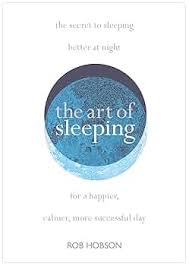Rediscovering the Art of Restful Sleep
There are four sources of energy which ensure our sustenance on planet Earth. These include food, breath, rest or sleep, besides a calm and meditative state of mind. These virtues are dealt with extensively in various programmes of the Art of Living. Unfortunately, humans generally pay scant attention to this sagacious advice at their own peril. Consequently, they suffer from various physical and psychological disorders.
On account of the modern-day lifestyle, we are popping sleeping pills. Because of deprived sleep, one feels enervated, not refreshed, which interferes with working and maintaining social contacts. Excessive sleep results in grogginess, headaches, mood swings, obesity, diabetes, and even back problems. Zen teachings advocate that sleep is remaining in the present and not permitting the mind to wander into the past or future. Aeons ago, a tutee asked a Zen master how to achieve peace of mind. The master replied: “When I eat, I eat. When I walk, I walk. When I sleep, I sleep.” The postulant pointed out that everyone does those things. The master explained that a majority of people eat while thinking or walking; they sleep while thinking about eating or other things. The monk learned to stop combating the wind by observing the bamboo grove. The bamboo, while bending and swaying, did not resist the wind.
The core message in these stories is that true sleep, like true mindfulness, involves living in the present and not dwelling on thoughts, but rather allowing the mind to settle into stillness.
Adequate sleep is extremely important due to the impact it has on our health. Appropriate sleep is salutary for our mental focus and memory, for combating stress, maintaining proper body weight, boosting the immune system, and a host of other wellness needs. It is interesting that infants and young children require 12–16 hours, depending on their age. Teenagers invariably need 8–10 hours of sleep. On the other hand, adults between the ages of 18 and 64 are refreshed with 7–9 hours of sleep. Lastly, those aged 65 years and above feel rejuvenated with around seven hours of sleep. Some golden rules to enhance sleep quality include regular physical exercise. Merely walking 10,000 steps is not enough. It should be accompanied by practices like Surya Namaskars, Padmasadhana, pranayama, Sudarshan Kriya, and meditation.
Equally important is maintaining fixed sleeping timings daily. Avoid smoking, alcohol, and caffeine before bedtime. The stomach should be light, as a heavy meal often causes restlessness and impairs sleep. A short walk before sleeping aids digestion and relaxation.
The sleeping environment also matters: A cool, pleasant, and dark room ensures deep rest, while zero screen time before bed enhances the natural rhythm of sleep. Sleeping direction has been emphasised in traditional practices. South is considered the best, as it aligns with the Earth’s magnetic field and promotes restful sleep. East benefits students and professionals by boosting alertness and concentration. North is discouraged, as it disrupts alignment, heightens agitation, and hampers sleep. West is said to favour professionals and leaders, fostering stability and financial well-being.
